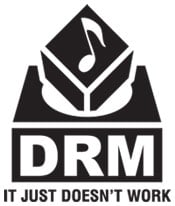The flaws of DRM are many and varied, and strike all sides. From Ubisoft using a scene crack to get past its own DRM, to those that bought DRM’d CDs from Sony, and ended up with an exploitable computer because of it.
The story is the same everywhere; DRM has been a hindrance to those who encounter it on original product. However, it is not a hindrance to those that obtain their media via torrents and other peer-to-peer methods, since the files traded on the net don’t contain DRM. These versions are free from restrictions, and that is one of the reasons why Spore was pirated so often.
With DRM having gotten such bad press in general, and probably after receiving lots of complaints, the US Federal Trade Commission (FTC) has decided to learn more about it. It has announced a town hall meeting, to take place at the University of Washington Law School, in Seattle. The meeting, which will take place in late March, will also be webcast online.
More unusually, to those who have experienced government meetings on these sorts of topics, they’re adopting a very open policy. Not only are they accepting submissions for consideration, but the panelists are not set. In fact, they’re openly accepting requests from those wishing to be panelists, saying they’ll be selecting based on qualifications and the various perspectives. The deadline for responses on both of these is January 30th though, so TorrentFreak readers eager to get involved had better not hang around.
The FTC has discussed DRM before. In 2006, as part of a conference titled “Protecting Consumers in the Next Tech-ade”, there was a panel discussion into DRM and its impact on consumers. Some argued it was good for consumers, allowing them to pay a reduced price for limited access – such as a book someone would only read once (clearly someone hadn’t heard about libraries). Others pointed to a study saying people would pay more for products without DRM, highlighting the fact that prior to DRM, they didn’t have to pay more. Quote of that event though, was Microsoft’s Andrew Moss, who said “What [DRM] is intended to do is give people choices”. Unfortunately, where DRM is concerned, that choice is usually centered around the decision to pirate rather than buy.
The agenda for the new meeting indicates that it will not be plain sailing for those touting DRM. It mentions the burdens on consumers, before it mentions any benefits. That alone should set warning bells ringing in the offices of DRM manufacturers up and down the country. It may be that 2009 will bring the technological change many have hoped for, with common sense finally triumphing over corruption, and giving consumers what they want, not the scraps that copyright owners want to toss them.


 The flaws of DRM are many and varied, and strike all sides. From Ubisoft
The flaws of DRM are many and varied, and strike all sides. From Ubisoft 



